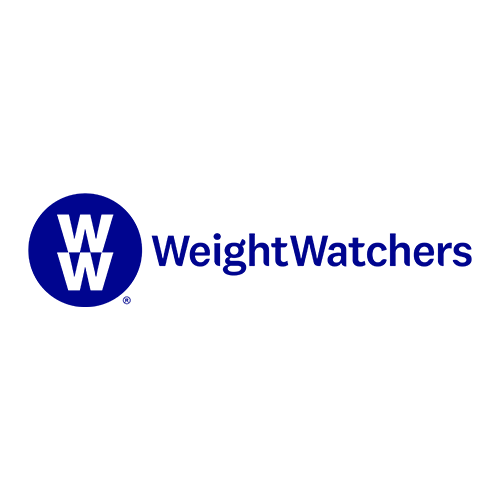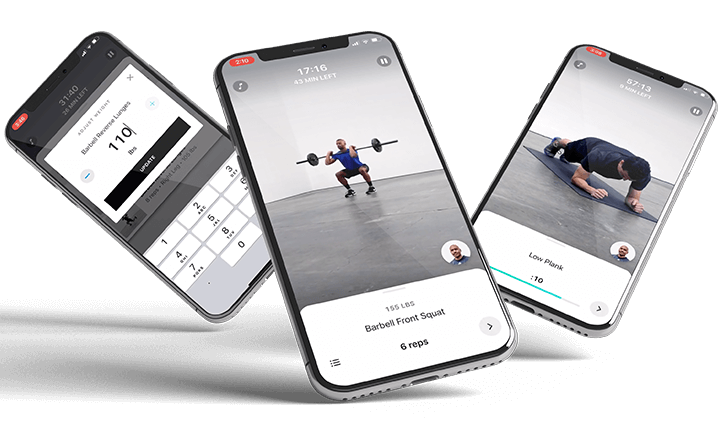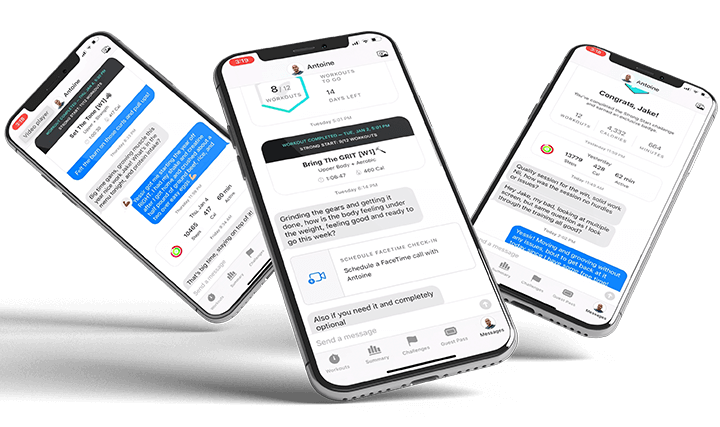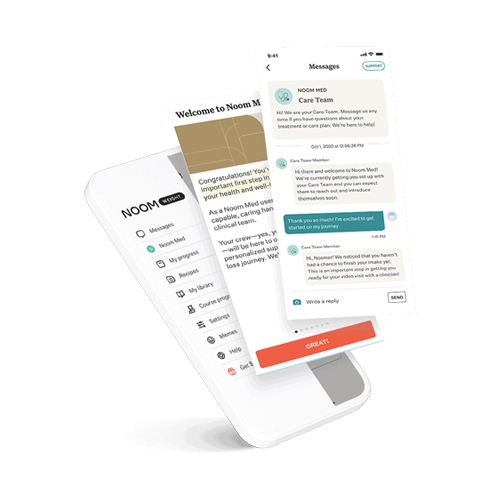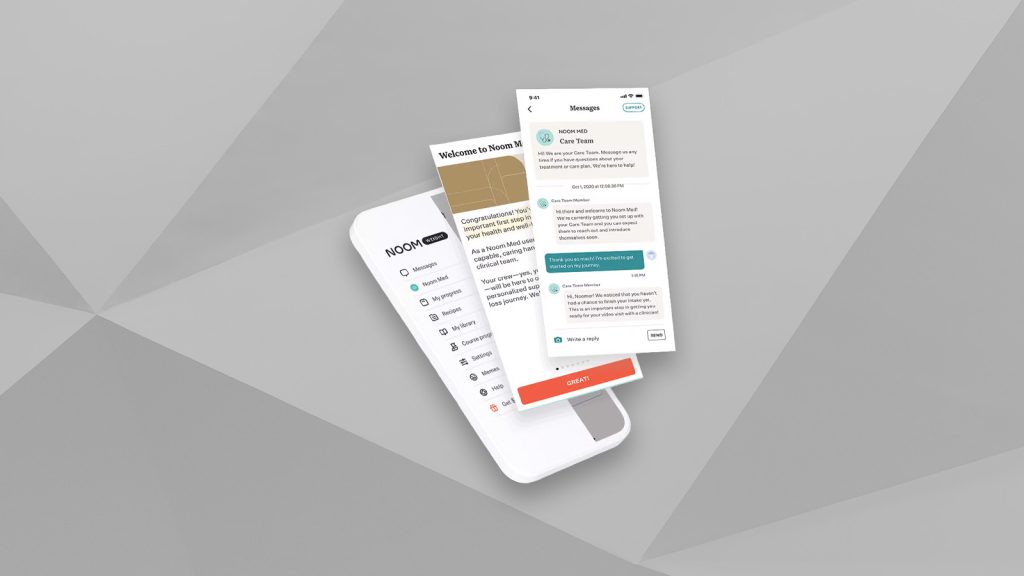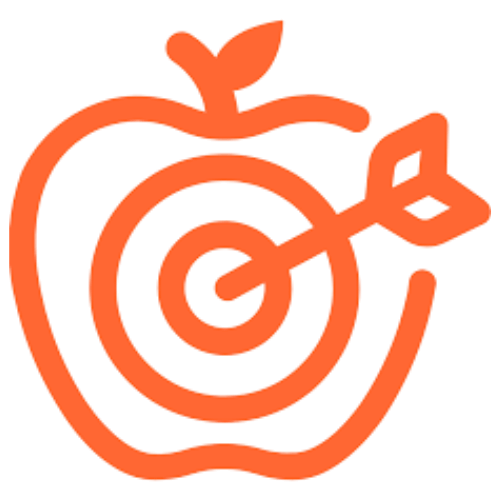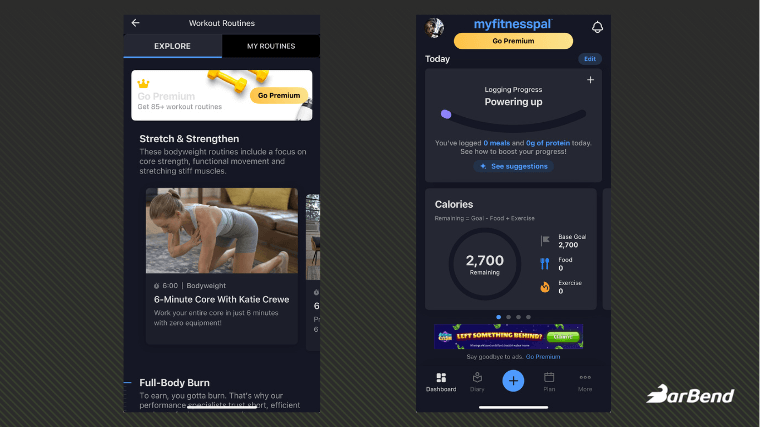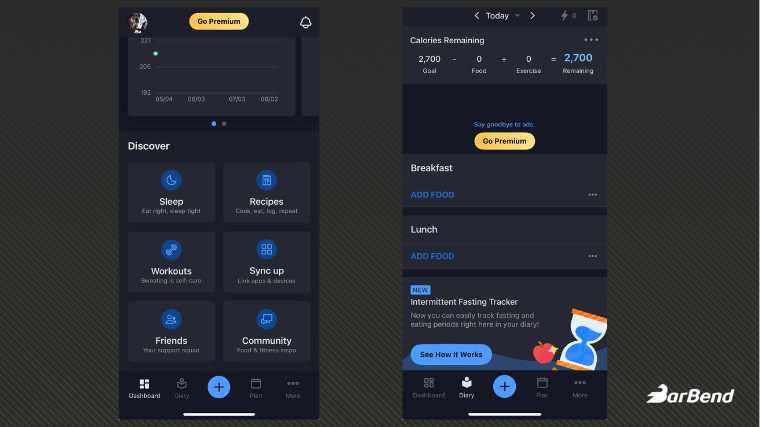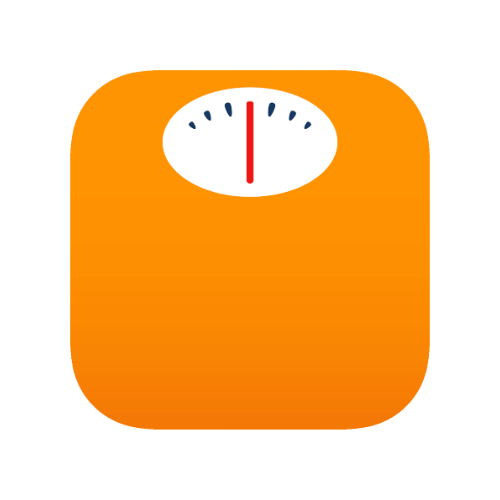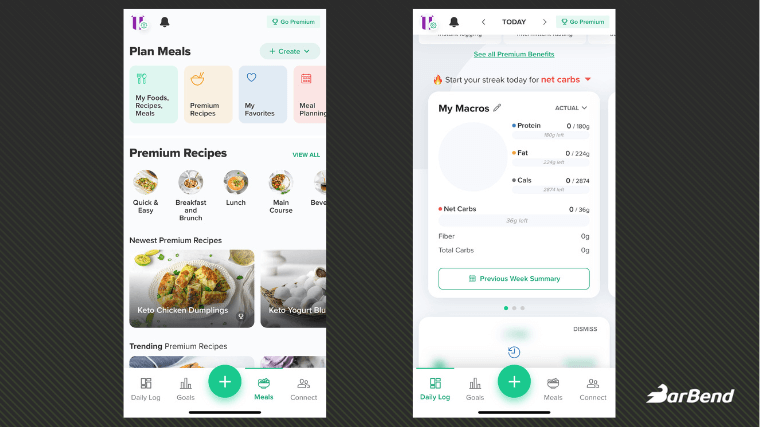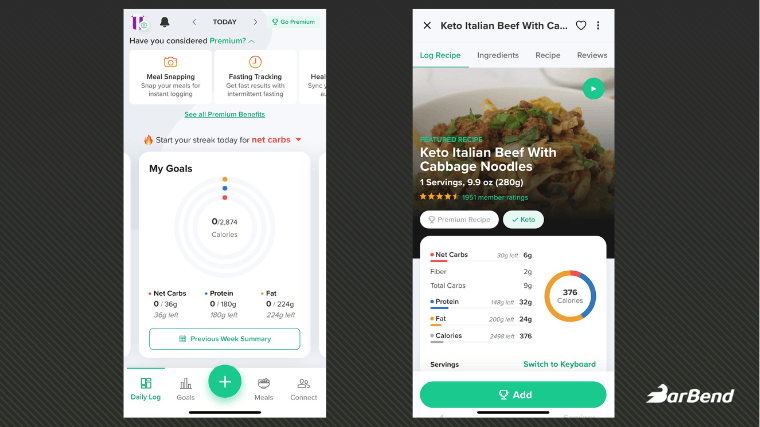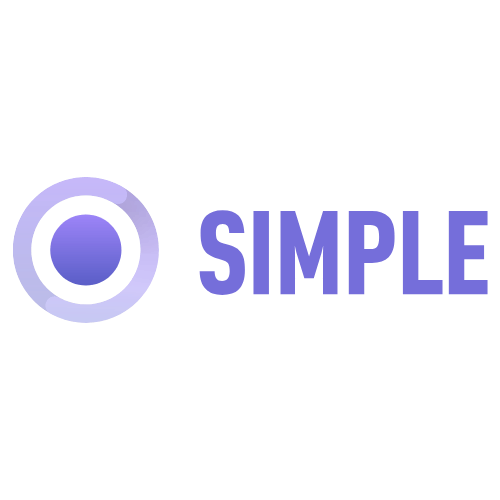According to Chelsea Rae Bourgeois, “Sustainable weight loss requires a holistic approach to achieve the goal, often requiring multiple lifestyle changes across diet, sleep, and physical activity habits.” As such, the best weight loss programs can be helpful tools when trying to adhere to these new experiences. Weight loss apps can take this assistance even further with always-available features for diet tracking, habit-building, and more.
It takes one look into your device’s respective app store, though, to see there are plenty of available options, which can make finding the right weight loss app for your needs difficult. To help you make the most of your next download, our team of experts trialed over 12 different weight loss apps from popular platforms, using our equipment testing methodology to rate and examine each service in categories such as:
- User Interface: Is the app easy to navigate? Are there any issues with the layout or general functionality?
- Available Features: What sort of tracking can the app support? Is it food-, sleep-, or activity-based? Are there added tools like available coaching or community forums for extra weight loss support?
- Device Compatibility: Is the platform only available on certain devices, or is the programming supported by all carriers?
- Value: Does the app require a subscription? Is there a paywall to other available tools? Does the performance justify the cost?
The BarBend team has helped connect over 2.9 million athletes with high-quality nutrition, strength, and conditioning products supporting your entire fitness journey. If you’re in need of a new digital tool for weight loss support, we’re confident that the following details can make navigating the app store a far more manageable endeavor.
The 8 Best Weight Loss Apps of 2025
- Best Weight Loss App Overall: WeightWatchers
- Best Weight Loss App with Coaching: Future
- Best Weight Loss App for Habit Tracking: Noom
- Best Weight Loss App for Logging Meals: Cronometer
- Best Free Weight Loss App: MyFitnessPal
- Best Weight Loss App for Beginners: Lose It!
- Best Keto Weight Loss App: Carb Manager
- Best Weight Loss App for Intermittent Fasting: Simple App
Medical disclaimer: The content on BarBend is meant to be informative in nature, but it should not be taken as medical advice. The opinions and articles on this site are not intended for use as diagnosis, prevention, and/or treatment of health problems. It’s always a good idea to talk to your doctor before beginning a new fitness, nutritional, and/or supplement routine. Individual needs for vitamins and minerals will vary.
Best Weight Loss App Overall: WeightWatchers
WeightWatchers
Monthly subscriptions available
Caters to plant-based diets
Expert-backed guidance & support
Pros
Unique Points system doesn’t restrict foods
User-friendly app experience
Upgraded memberships for workshops and prescriptions
Affordable subscription fees starting at $23 monthly
Cons
Best supported with weekly weigh-ins
Can be confusing for newcomers
Tracking is reserved to just a handful of health metrics
WeightWatchers uses a science-based points system to help users track more than just calorie intake so they can lose weight and develop better long-term habits. Additionally, the platform offers premium memberships, granting athletes access to helpful virtual or in-person workshops as well as the potential for prescription weight management medications.
Best Weight Loss App with Coaching: Future
Future
Workouts tailored to your available equipment
Monthly subscription required
Nutrition planning available via Nourish
Pros
Customized personal training workouts
In-app communication with trainer
Nutrition support via Nourish
Cons
Expensive monthly subscription costs
Workouts need to be logged manually
Training experience can be limited by your available equipment
Future offers online personal training in every facet of fitness. Every client gets a certified fitness professional who will prescribe training programs, follow up daily to assess progress, make program adjustments as needed, and offer accountability.
Best Weight Loss App for Habit Tracking: Noom
Noom
Color-coding system for good meal options
Subscription required for app service
Can support plant-based eating habits
Pros
Psychology-based weight-loss approach
Get access to health coach and community
Easy-to-navigate interface
Cons
Logging meals can be tedious
Doesn’t sync with activity trackers
Not ideal for specified diets or fitness goals
Noom combines psychology and behavioral science with traditional weight loss features like meal and activity tracking, personal coaches, and online communities to help customers adopt a healthier lifestyle.
Best Weight Loss App for Logging Meals: Cronometer
Cronometer
Capable of tracking up to 84 nutrients
Free version available with ads
Can support plant-based eating habits
Pros
Comprehensive tracking capabilities
Large community for support and motivation
Syncs with popular fitness trackers
Cons
Meals need to be logged by ingredient, which can be tedious
Certain tracking features hidden behind paywall
Some may prefer a weight loss app with additional training instruction
For a detailed breakdown of your daily consumption, Cronometer can be a helpful digital tool capable of tracking key metrics like calories, macronutrients, micronutrients, and more. Plus, the built-in community can be great for sharing recipes, boosting motivation, and staying consistent with your nutrition goals.
Best Free Weight Loss App: MyFitnessPal
Best Free Weight Loss App
MyFitnessPal
Multiple graphs and charts for data recognition
Premium version available for added tracking
Can be suitable for plant-based diets
Pros
Large library of loggable foods and recipes
Simple interface is easy to navigate
Free version boasts plenty of effective tools and features
Cons
Weight management routines are less tailored than other services
Free version does not support barcode scanning for easier tracking
The MyFitnessPal app is a comprehensive tracker that allows you to plan your meals in advance and tailor your eating to specific calorie or macro goals. Plus, there is a free version of this app, too.
Best Weight Loss App for Beginners: Lose It!
Lose It
Legible app interface for easy navigation
In-app purchases available
Can support plant-based diets
Pros
Simple, intuitive app layout
Capable of tracking activity, nutrition, water intake, and more
Syncs to popular wearables for more informed tracking
Barcode scanner available for easier meal logging
Cons
Fewer tracked metrics than other apps we’ve tested
Lose It! can be an effective weight loss app for beginners thanks to its robust library of preset foods and meals along with convenient tracking tools like a barcode scanner. Plus, the app’s built-in community forum can be ideal for staying motivated throughout your weight loss journey.
Best Keto Weight Loss App: Carb Manager
Carb Manager
Premium services available via subscription
Ideal for low-carb and ketogenic diets
Food database includes verified sources
Pros
Ideal for tracking net carb consumption
Features available recipes and other planning tools
Fasting tracker included in app layout
Can customize macronutrient goals
Cons
Premium features hidden behind paywall
Not recommended for those with disordered eating tendencies
With a specific layout catering to keto diets and low-carb athletes, Carb Manager can be a convenient calorie tracking tool for daily weight management goals. The available graphs and charts are simple and intuitive, and our testers appreciate the specialized format that aligns with a low-carb diet.
Best Weight Loss App for Intermittent Fasting: Simple App
Best for Intermittent Fasting
Simple App
AI-driven fasting reminders
Premium subscriptions for added tools
Can support plant-based diets
Pros
Designed specifically to support intermittent fasting
Simple, convenient meal logging tools
Clean interface that’s simple to navigate and use
Cons
Limited accountability features
Less ideal for those following traditional dieting strategies
Some features hidden behind paywall
For those interested in intermittent fasting, Simple can be an excellent app to add to your home screen. The AI-powered service learns as you progress and suggests fasting times with convenient notifications to let you know when you should be consuming nutrient-rich foods for optimal results.
How We Tested and Chose the Best Weight Loss Apps
The BarBend team is made up of competitive athletes, certified personal trainers, nutrition coaches, and lifelong fitness enthusiasts. To compile this guide to the best weight loss apps, our roster of experts downloaded, scrolled through, and examined 15 different platforms, using our equipment testing methodology to guide and structure each trial. We also rated each app on a scale of 1 (lowest) to 5 (highest) in key categories, including:
- User Interface: Similar to the best online workout programs, a weight loss app that’s complicated or difficult to navigate can lead to disgruntled or unmotivated experiences. We made sure to comb through all available features and user experiences, highlighting services that were intuitive and well-designed with clear metrics and legible charts.
- Tracking Capabilities: Many weight loss apps operate as calorie-counting tools for weight management as you build out your food diary with consumed goods. Our trials examined whether these measurements were accurate based on listed nutritional information or standard metrics for common dishes and ingredients. We also prioritized multifaceted weight loss apps offering features like water intake monitoring, habit tracking, intermittent fasting features, and more.
- Additional Features: While many weight loss apps (naturally) focus on diet and nutrition as they relate to your well-being, we understand that weight management is a multilayered process. As such, we prioritized services that allow you to build healthy habits in multiple categories, whether through instructor-led training sessions, psychological support, community-based communication, and more. For diet-specific apps, we also looked for food databases and supportive metrics that aligned with the diet’s strategy and perceived effects.
- Device Compatibility: This is fairly straightforward, but you cannot expect to use an app if it isn’t available for your device. We made sure to note which operating systems supported each chosen service, as well as which apps were compatible with popular fitness wearables like Garmins, Apple Watches, and Fitbits.
- Price: Most of the apps featured in this guide do offer a free version, yet some do require an eventual subscription to unlock all fitness-related features and weight management perks. We made note of available pricing when appropriate.
Benefits of Weight Loss Apps
“Well-intentioned weight loss programs and apps can be very beneficial for those in the throes of a weight management journey,” notes Amanda Capritto, CPT, CSNC, CPS. “In addition to more informed eating and wellness tracking, they can also be motivating tools to assist in making changes for the better when it comes to your overall health.” Here are a few more potential perks that can come from adding a weight loss app to your home screen.
- Higher Potential for Success: According to studies, athletes that utilize a weight loss app for nutrition tracking have shown more success in reaching their weight loss goals than those that don’t monitor their meals each day. (4) These cost-effective digital tools can also serve as more approachable means of caloric tracking when compared to traditional in-person weight management programs.
- User-Friendly Data Tracking: Tracking calories can be stressful, especially if you’re less experienced with deciphering nutrition labels and determining key macros for weight loss with each dish. Weight loss apps typically feature a food library of preset metrics, eliminating the need for number crunching before picking up your eating utensils. Some advanced services can even feature convenient barcode scanners for direct data logging.
- Convenient Features: “There is no magic pill for weight loss,” states registered dietitian nutritionist and BarBend expert reviewer, Chelsea Rae Bourgeois. However, health apps focused on weight management can offer convenient, helpful guides to better lifestyle changes, such as suggested recipes for high-protein breakfasts and dinners, educational articles on specific diet types, supplemental trackers for habits and water intake, and much more.
- Affordable Assistance: While not always the case, many health apps can be downloaded without a required subscription fee. Granted, some features may be hidden behind paywalls, such as online coaching instruction or micronutrient tracking, but you can easily get a feel for an app’s potential without having to invest upfront.
- Access to Fellow Weight Loss Enthusiasts: In addition to health-minded features and food logging tools, some weight loss apps have community threads baked into their interface where fellow users share their experiences and offer words of encouragement. This can help instill a sense of support amongst others as you learn to develop (and stick to) healthy lifestyle changes and improved relationships with food and exercise.
How Much Do Weight Loss Apps Cost?
Like your food choices from the best high-protein fast food to home-cooked helpings of your favorite nutritious dishes, weight loss apps can vary in price depending on their available features, compatibility with digital training devices, and more. Thankfully, though, many popular services are available as a free app, albeit with potential ads or in-app purchases that ultimately push athletes to sign up for premium levels (at higher costs). Below, we’ve outlined the starting prices of all apps featured in this guide to help you decide which price point is right for your personal budget.
| Best Weight Loss App Overall | WeightWatchers | Starting at $23 per month |
| Best Weight Loss App with Coaching | Future | $199 per month |
| Best Weight Loss App for Habit Tracking | Noom | $70 per month |
| Best Weight Loss App for Logging Meals | Cronometer | Starting at $0 per month |
| Best Free Weight Loss App | MyFitnessPal | Starting at $0 per month |
| Best Weight Loss App for Beginners | Lose It! | Starting at $0 per month |
| Best Keto Weight Loss App | Carb Manager | Starting at $0 per month |
| Best Weight Loss App for Intermittent Fasting | Simple App | Starting at $0 per month |
What to Consider Before Downloading a Weight Loss App
“A good weight loss plan involves multiple changes surrounding nutrition, fitness, sleep, and wellness,” notes Dr. Christopher Mohr, PhD, RD. Accordingly, when choosing a weight loss app to support your journey, you should consider a handful of factors before downloading a specific service.
Weight Loss Goals
If you’re interested in weight loss apps, odds are that one of your fitness goals is better weight management. That said, you should consider the how and why for this aspiration when deciding on a digital nutrition tool.
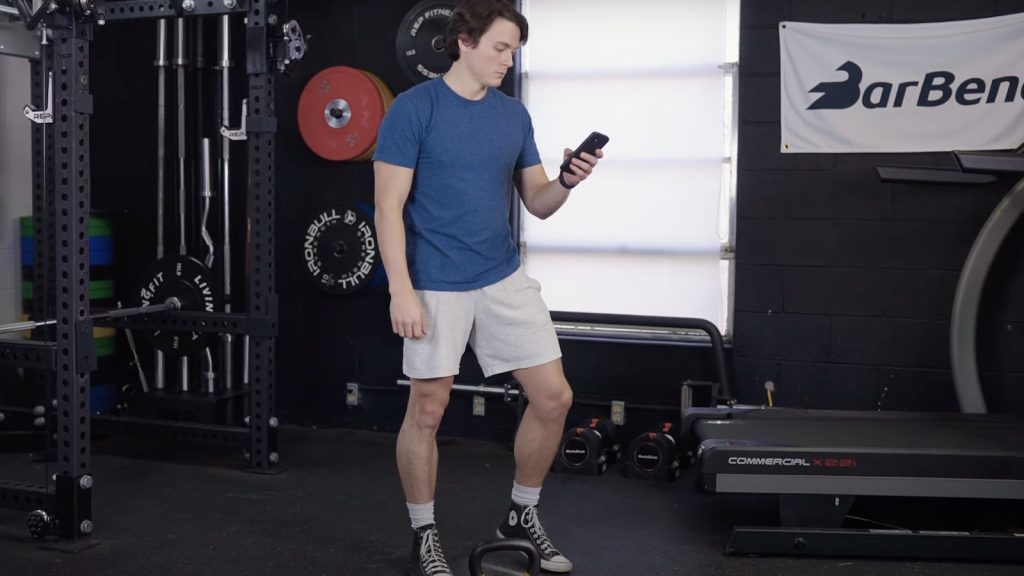

Are you looking to switch up diet plans and simply aim for a calorie deficit, or are you trying to rethink your relationship with food overall? What about training needs? Do you have a comfortable program, or do you need assistance on that front, as well? Considering why you want to lose weight and how you’d prefer to do so can greatly influence which weight loss app is ideal for your personal wants and needs.
Level of Involvement
While some athletes may prefer a simplified calorie counter with available food and recipe libraries, others may want some extra assistance for improved nutrition, either in the form of digital coaches, AI algorithms, or community-based support. Weight loss apps can offer any and all of these services, so you can comfortably download a platform that matches your preferences. Be mindful, though, that health apps with available coaching or consultations can typically cost more, so you’ll need to factor in any subscription fees when planning your budget.
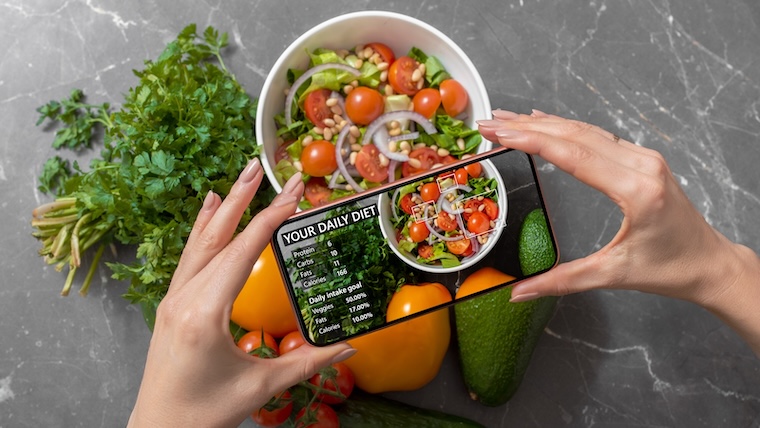

Your level of desired involvement will also influence how much you need to work with the app each day. Take a gander at customer reviews to see if the food logging protocols are simple and convenient. If you’ll need to manually enter all meals instead of, say, scanning a barcode or choosing from a preset roster of dishes, odds are that this practice will grow tiresome over time.
Available Features
In addition to calorie and activity tracking, weight loss apps can boast other wellness features designed to improve your weight management program. Such features can include diet-specific layouts catering to such nutrition plans as keto, plant-based, and paleo diets, available water and sleep tracking modules for multilayered data tracking, community forums for a social aspect to weight loss, and more. Be sure to read through all available features prior to download and determine which assets may be helpful for your personal journey.
Price
Thankfully, there are a ton of free weight loss apps on the market loaded with helpful features for improved nutrition. That said, some of these services may hide their most influential aspects behind a paywall, requiring a subscription for the most effective usage. When choosing a weight loss app, it may be best to consider the premium membership fees from the start. You can still download the free version to get a feel for the user experience, but budgeting for the higher expense can provide a more detailed sense of if the app is affordable within your budget.
Best Weight Loss Apps FAQs
What is the best weight loss app?
The best weight loss app can be subjective depending on factors such as your budget, preferred level of involvement, and overall weight management goals. For our money, though, we really enjoy WeightWatchers and the brand’s point-based system for tracking daily consumption. With a monthly subscription fee of $23, it’s also one of the most affordable weight loss apps we’ve tested.
How much do weight loss apps cost?
While there are many free versions of popular weight loss apps, you’ll likely need to pay a monthly membership fee to unlock all available features and tools. On average, you can expect to pay anywhere from $23 monthly to nearly $200 monthly, depending on how many resources you want in your app. Higher costs typically feature one-on-one consultations with a coach or nutritionist, high-quality data tracking capabilities across macro- and micronutrients, and other premium features.
Do weight loss apps actually work?
In theory, yes. Weight loss apps can be a beneficial resource when going through a weight management program, with studies suggesting they can lead to higher success rates than traditional tracking methodologies. (4) However, like anything health and fitness, your experience is dependent on your effort. If you use the tools as they’re intended and regularly engage with the app, you’ll likely see better results. Remember, too, that weight management is a marathon, not a sprint, but with the right mindset and dedication, results can come.
References
- Huttunen-Lenz, M., Hansen, S., Raben, A., Westerterp-Plantenga, M., Macdonald, I., Stratton, G., Swindell, N., Martinez, J. A., Handjieva-Darlenska, T., Poppitt, S. D., Silvestre, M. P., Fogelholm, M., Jalo, E., Brand-Miller, J., Muirhead, R., Larsen, T. M., Vestentoft, P. S., Handjiev, S., & Schlicht, W. (2022). Forming new health behavior habits during weight loss maintenance—the preview study. Health Psychology, 41(8), 549–558. https://pubmed.ncbi.nlm.nih.gov/35787141/
- Espinosa-Salas, S. (2023, August 8). Nutrition: Macronutrient intake, imbalances, and interventions. StatPearls [Internet]. https://www.ncbi.nlm.nih.gov/books/NBK594226/
- Sun, M.-L., Yao, W., Wang, X.-Y., Gao, S., Varady, K. A., Forslund, S. K., Zhang, M., Shi, Z.-Y., Cao, F., Zou, B.-J., Sun, M.-H., Liu, K.-X., Bao, Q., Xu, J., Qin, X., Xiao, Q., Wu, L., Zhao, Y.-H., Zhang, D.-Y., … Gong, T.-T. (2024). Intermittent fasting and Health Outcomes: An umbrella review of systematic reviews and meta-analyses of randomised controlled trials. eClinicalMedicine, 70, 102519. https://pubmed.ncbi.nlm.nih.gov/38500840/
- Ufholz, K., & Werner, J. (2023, March 23). The efficacy of mobile applications for weight loss – current cardiovascular risk reports. SpringerLink. https://link.springer.com/article/10.1007/s12170-023-00717-2

